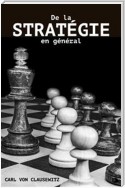Carl Von Clausewitz

Carl Philipp Gottfried "Gottlieb" von Clausewitz (/ˈklaʊzəvɪts/; June 1, 1780 – November 16, 1831) was a German (Prussian) general and military theorist who stressed the "moral" (in modern terms, psychological) and political aspects of war. His most notable work, Vom Kriege (On War), was unfinished at his death. Clausewitz was a realist and used the more rationalist ideas of the European Enlightenment. His thinking is often described as Hegelian because of his references to dialectical thinking but, although he was probably personally acquainted with Hegel, there remains debate as to whether or not Clausewitz was in fact a disciple. He stressed the dialectical interaction of diverse factors, noting how unexpected developments unfolding under the "fog of war" (i.e., in the face of incomplete, dubious, and often completely erroneous information and high levels of fear, doubt, and excitement) call for rapid decisions by alert commanders. He saw history as a vital check on erudite abstractions that did not accord with experience. In contrast to Antoine-Henri Jomini, he argued that war could not be quantified or reduced to mapwork, geometry, and graphs. Clausewitz had many aphorisms, of which the most famous is that "War is the continuation of Politik by other means" (Politik being variously translated as "policy" or "politics", terms with very different implications), a description that has won wide acceptance.
 čeština
čeština Deutsch
Deutsch English
English magyar
magyar polski
polski русский
русский français
français Azərbaycan
Azərbaycan беларуская
беларуская italiano
italiano ქართული
ქართული қазақ
қазақ Nederlands
Nederlands português
português slovenčina
slovenčina español
español 中文
中文









